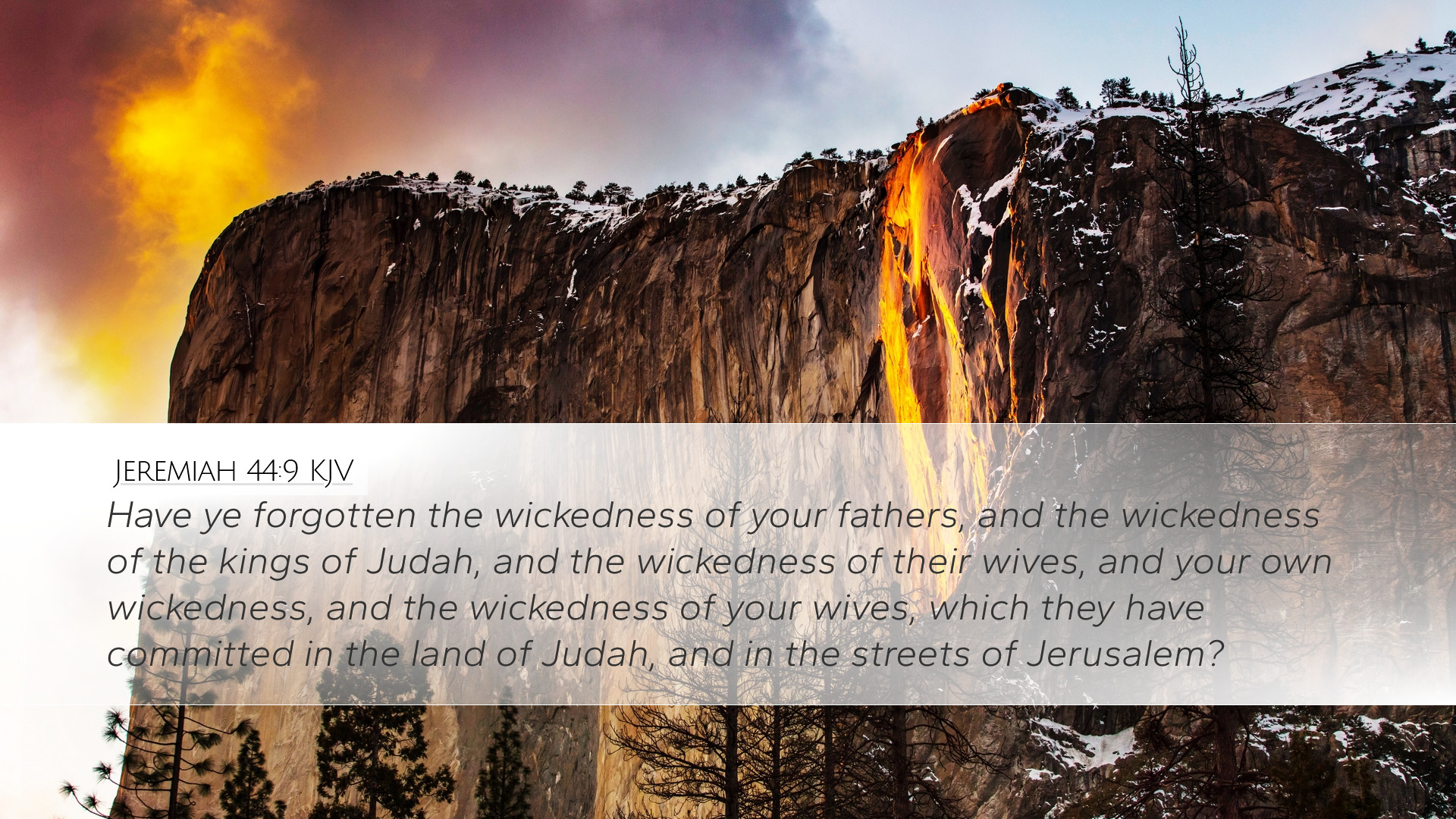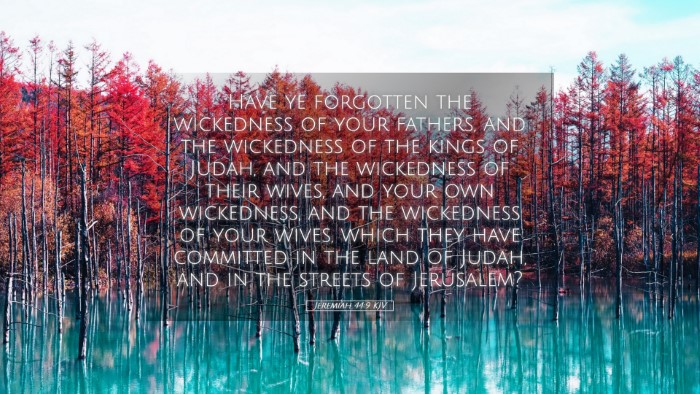Commentary on Jeremiah 44:9
In Jeremiah 44:9, the prophet Jeremiah addresses the people of Judah who have fled to Egypt. This verse serves as a point of reflection on their past actions and a warning about the consequences of their disobedience to God. Here, we provide a thematic commentary based on the insights from various public domain sources.
Contextual Analysis
Jeremiah 44 occurs in a critical period following the Babylonian conquest of Jerusalem. The remnants of Judah, fearing retribution from the Babylonian forces and rejected by their own land, have sought refuge in Egypt. This flight symbolizes a lack of faith in the divine protection God promises and reflects a departure from His commandments.
Historical Background
Matthew Henry highlights that the historical context of this flight is essential for understanding the message of the prophet. The people of Judah have witnessed the fall of Jerusalem and now turn to Egypt seeking security. This context sets the stage for Jeremiah’s challenge of their misguided allegiance to foreign powers.
Thematic Insights
-
Rejection of God's Warning:
Albert Barnes notes that this verse underscores the people's deliberate choice to ignore the prophetic warnings delivered by Jeremiah. Their rejection demonstrates a hardened heart against divine counsel.
-
Idolatry and Apostasy:
Adam Clarke points out that the people’s penchant for idol worship, specifically their devotion to the queen of heaven, leads to their downfall. This pursuit of false gods reveals a profound spiritual disconnect and a direct violation of God's commandments.
-
Consequences of Sin:
Henry elaborates on the consequences outlined in Jeremiah’s message. He emphasizes that the continuation of their sinful practices in Egypt will not lead to divine favor but rather to inevitable judgment.
Theological Implications
The theological significance of Jeremiah 44:9 extends beyond the immediate context. It calls attention to the nature of God’s justice and mercy, as well as the importance of repentance.
Divine Sovereignty
Barnes expresses that God's sovereignty is a recurring theme in the prophecies of Jeremiah. Despite their attempts to escape judgment by fleeing, God's purposes cannot be thwarted. Their disobedience only reinforces the grand narrative of divine discipline.
Faithfulness and Repentance
Clarke discusses the themes of faithfulness and repentance, asserting that God desires His people to be vigilant and faithful to His covenant. The refusal to heed Jeremiah’s warnings invites calamity, and true repentance is indicated as the only avenue for restoration.
Practical Applications
This verse carries practical applications for contemporary believers. It serves as a reminder of the dangers of spiritual complacency and the necessity of staying true to one's faith, even in times of distress.
Heeding Prophetic Guidance
Today’s leaders and laypersons alike are encouraged to listen to wise counsel and prophetic voices within the church. A posture of humility and receptivity to correction can lead to spiritual rejuvenation.
Avoiding Idolatry
Jeremiah 44:9 also challenges believers to examine their own lives for modern forms of idolatry. In a world saturated with distractions, the call to focus on God and shun false idols remains crucial.
Conclusion
In conclusion, Jeremiah 44:9 serves as a poignant reminder of the consequences of disobedience and the importance of faithfulness to God. The insights from Matthew Henry, Albert Barnes, and Adam Clarke collectively enhance our understanding of this significant verse, encouraging believers to remain steadfast in their covenant relationship with God.


